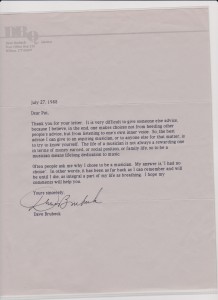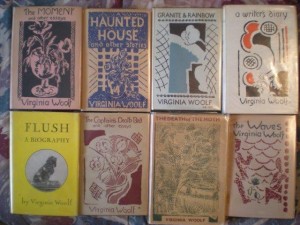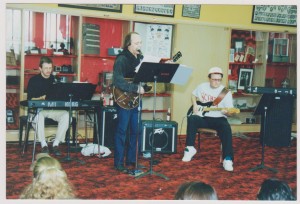(letter from jazz great Dave Brubeck to an aspiring young musician)
(the wonderful deep world, syntax, stream-of-consciousness of Virginia Woolf)
(the pleasures of reading solitude; Rick in gr. 12 class)
(the power of pop song lyrics and language to capture a young audience’s interest; Fudge plays Scona in the ’90s)
(as good as it gets or ever got for the English language: the top example of the richness, complexity, poetry, and depth of language)
language is a basic tool. To which I would add that your life depends a lot on your language and, in many ways, your vocabulary,(reflecting your ideas, thought, emotions, range of knowledge, attitude, and knowledge), your syntax (reflecting your limits, limitations, freedom, personality, perspective ), your style (your uniqueness), and your consciousness/awareness.
The more words, phrases, quotations, etc. you know, the larger your world and experience are, potentially too. People with little or minimal language are frankly limited–they can only say so little or not much, often turning to expletives or clichés (e.g., “Anyway”). They aren’t usually that interesting unless their personalities and values are communicated regardless.
It is very important to teach children today as many words as possible when they begin to vocalize. It is important that they are able to understand the external world as much as they can and are able to express themselves as much as possible (as in the case of a toddler answering a doctor’s question) and have some control over their worlds.
Language is simply empowerment; one’s own language is the greatest tool in creating autonomy and ensuring communication in daily practical situations, (e.g., of the latter–getting the order right via a fast food intercom).
As far as overall autonomy is concerned, this is pretty much along the lines Orwell was concerned about relative to language control and manipulation by external societal forces such as in advertising and politics. People aren’t just dummies to be used or manipulated to buy products and candidates; they are entitled to know how to critically examine others’ language for their own health and sanity ultimately.
But to be able to critically think, you have to be able to have words and sentences to understand and express yourself, and to ‘read’ what others say. In short, you need to be steeped in language and its many uses and abuses. Thus, language is consciousness and expression thereof.
I’ll just conclude here this morning by saying that the language exchanged or expressed in relationships and Literature (doh, who needs the latter in our glorious e-mediated world?) are some of the best language of all. There is a need for eloquence and poetry that enrich our lives and relationships. Words are, after all, from the infancy get-go, potentially pleasurable and fun to be shared, enjoyed, and savoured). In that simple fact alone, can be seen and known the most important fact and application of language within our common experiences with others.





